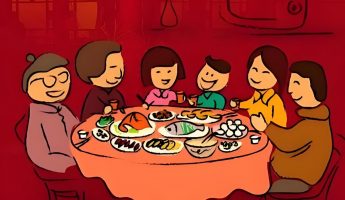As a long-standing ethnic group, the Bai ethnic group’s food culture is deeply influenced by their migration history, natural environment, and differences in local specialties. Although they share common ethnic characteristics with the Central Plains region, they also shine with unique charm in details.
After a long period of displacement and migration, the Bai people have made adaptive adjustments to their traditional diet based on the natural environment and local resources of their place of residence. In the Pingba area, rice and wheat have become regular staple foods; And deep into the mountainous areas, one can often see the presence of corn, potatoes, and buckwheat. Whether it is steamed rice, or various kinds of babe, baikuai, rice dumpling, rice noodles and other delicacies, it shows the diversity and creativity of the Bai diet.
Festivals and daily dietary customs
The Bai ethnic group attaches great importance to festivals, and each festival is accompanied by its own unique cuisine. During the Spring Festival, Ding Ding Tang, soaked rice tea, and Jiang Zhai rice soup warmed the hearts of family members; The steamed cakes and glutinous rice noodles on March Street are a sweet footnote to the festive atmosphere. The cold mixed food and “Zhai Yan Xiang” of Qingming Festival, Zongzi and realgar wine of the Dragon Boat Festival all reflect the respect and love of the Bai people for the festival. In their daily diet, they also pay attention to the balance between nutrition and taste, forming unique eating habits.
Wedding banquets and dietary taboos
At the wedding banquet of the Bai ethnic group, the “Xizhou Eight Bowls” are an indispensable delicacy. The eight carefully cooked hot dishes not only have a perfect combination of color, aroma, and taste, but also symbolize good luck and happiness. However, in terms of dietary customs, the Bai ethnic group also has strict taboos. On the first day of the Chinese New Year, iron knives are not allowed to be used, and housewives must cook quietly without blowing fire. They must go to the well to fetch new water. When cooking for families in mourning, all dishes must be boiled and stir fried, and red food is prohibited to show mourning.
Gifts and festive offerings
Roll noodles and dried rice, as a unique delicacy of the Baiyuan ethnic group, are not only a daily delicacy on the dining table, but also a great gift for friends and family. They are made from high-quality local rice as raw material, finely processed, with delicate taste and unique flavor. In addition, molded rice cakes and rice cake fruits are also indispensable foods for Bai ethnic festivals and ancestor worship. They not only carry the joy and solemnity of festivals, but also reflect the inheritance and respect of traditional culture by the Bai people.
The charm of pickled and spoiled food
The Bai people are also skilled in pickling various types of food, which can often be preserved for several years without spoiling and have a better flavor. Pickled radish, pickled spicy mushrooms and other pickled products have won wide popularity for their unique taste and flavor. At the same time, they also spoiled ingredients such as green soybeans and bamboo shoots to make delicious dishes such as fermented black beans and imperial bamboo shoots.
The unique charm of distinctive cuisine
Sand pot fish and sand pot tofu are treasures in the Bai ethnic cuisine. They have won the favor of diners with their rich ingredients and unique cooking techniques. In addition, specialty foods such as milk fans, fresh pork liver, blown liver, and raw skin are also unforgettable. Milk fan is made from goat milk as raw material, with delicate taste and rich milk aroma; Pig liver fresh and blown liver are delicious dishes made by special processing of pig liver; Raw pork skin is a traditional dish where pork skin is roasted until golden brown and the meat is undercooked before being sliced and consumed. These delicacies not only showcase the wisdom and creativity of the Bai people, but also make people feel the unique charm of Bai cuisine culture.



